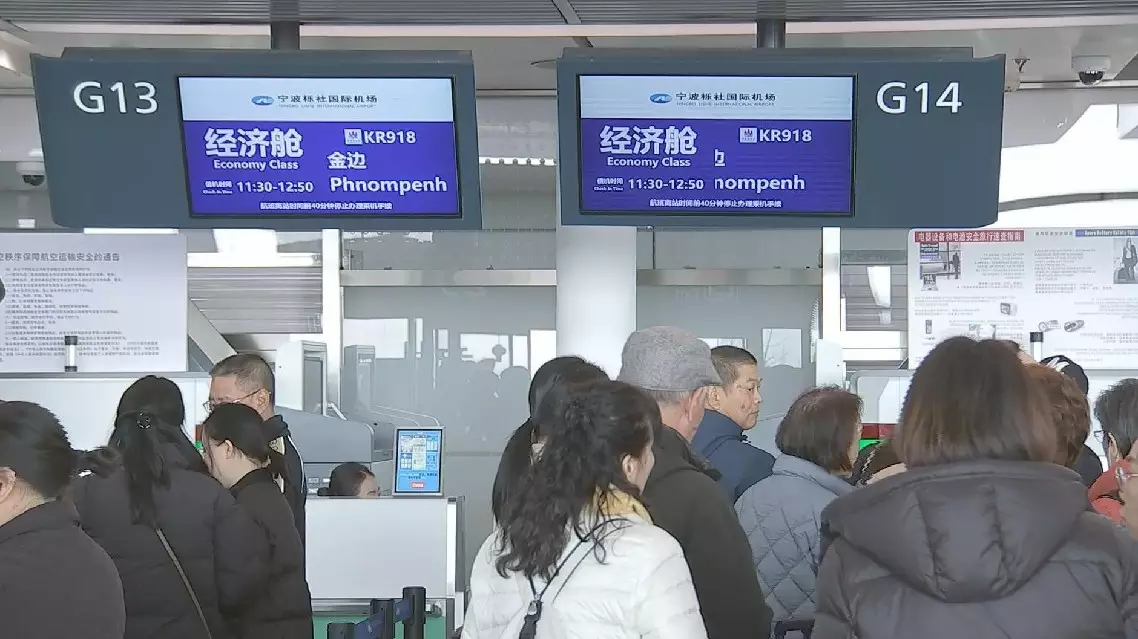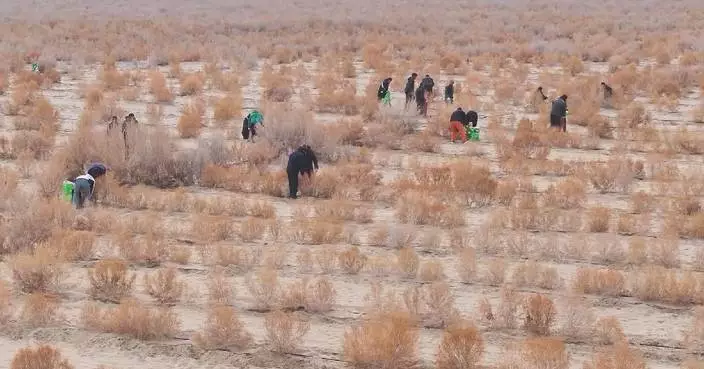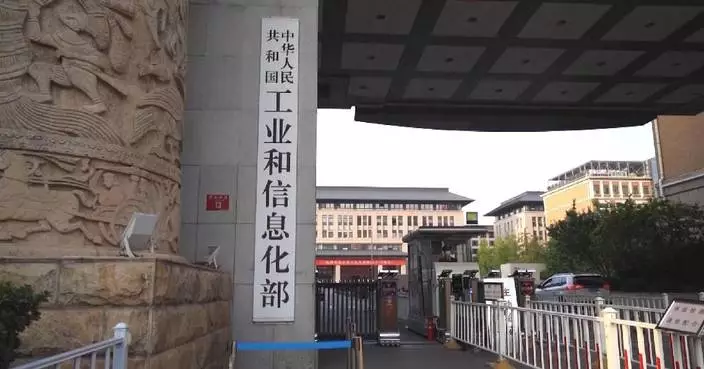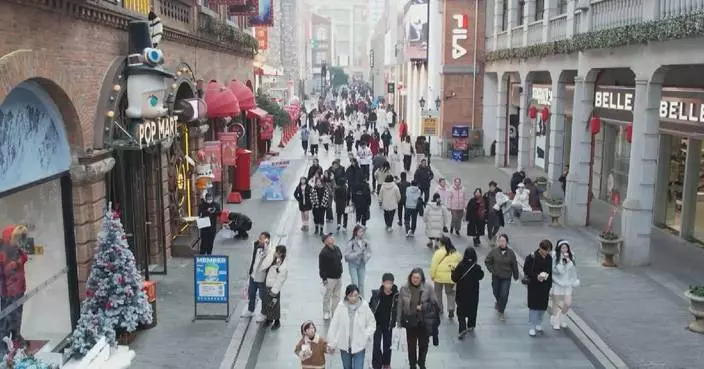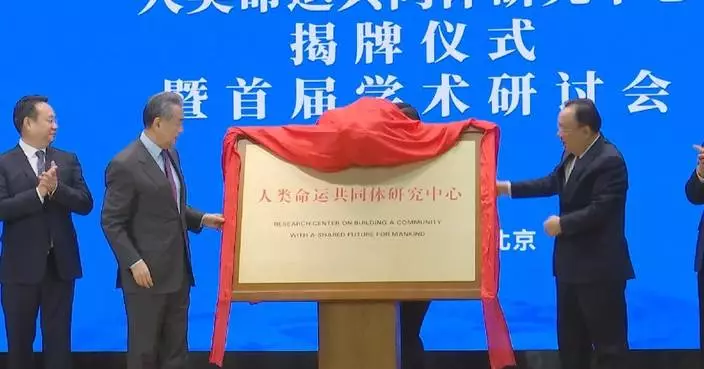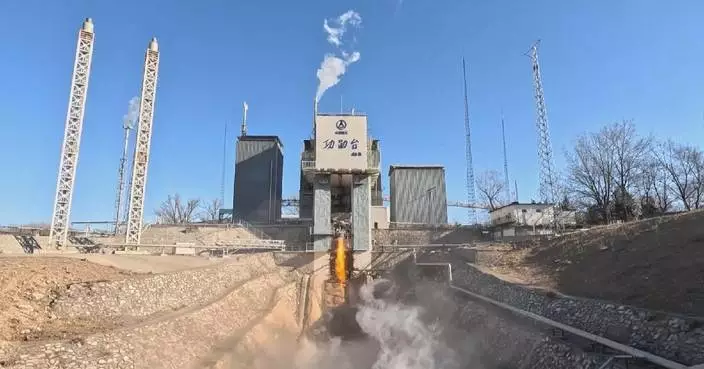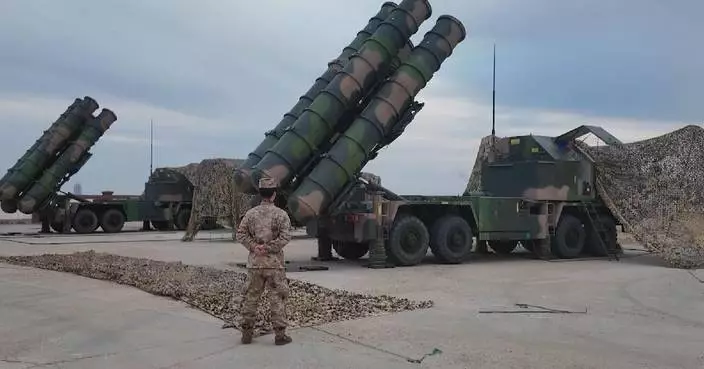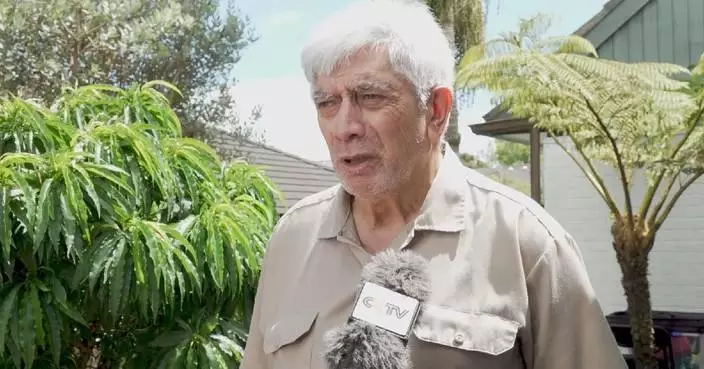A former United Nations General Assembly (UNGA) president has called on all countries to unite together to address a range of interconnected, human-created challenges.
Maria Fernanda Espinosa was the president of the 73rd session of the UNGA and former Foreign Minister of Ecuador. With over three decades of taking on roles in academia, NGOs, international organizations and government, she has gained a gamut of expertise in the fields of international relations, peace and security, sustainable development and climate change.
She shared her insights on the current challenges that face humanity and international cooperation in a recent interview with China Global Television Network on the sidelines of the two-day 7th Paris Peace Forum which opened on Monday.
"I would say that the world is full of what they're called multiple and interconnected crises. Crisis on the security front. Crisis on the economic front because of looming inequalities. Crisis on the nature and environment front we are experiencing, what has been called the extinction crisis. And the climate crisis. I think that as citizens, as former public servants and diplomats, we have the responsibility to do something about the things of that we don't like. But all these are human creations. Therefore they have human solutions," she said.
On the UN's evolving role, Espinosa stressed that the international body should be lauded for its accomplishments while pressing forward to form a fairer and more effective institution.
"The main mandate of the UN is keeping the world safe, free of wars, and of course, a pillar on development and on human rights. These are the three pillars 80 years ago, and I think the context has changed, geopolitics has changed, the challenges ahead of us have changed. And I think that the UN is an organization that has done a lot of good but needs to be retooled," she said.
The lifelong diplomat stressed that today's world is in urgent need of international cooperation and solidarity.
"I think the need for international cooperation, the need for better diplomacy, the need for solidarity, the need for really building a human community is more needed than ever. We learned that the hard way with COVID-19. We understood that we are fragile, vulnerable, interdependent. The same thing goes on access to technology, on artificial intelligence, on the service economy that is so important today, when you look at the geopolitics of where are the raw materials that are fundamental for the future," Espinosa said.
Despite the array of challenges, the former UNGA president said that shifts away from concentrated global power give her hope for the future.
"What we see is a multipolar world, a polycentric world, some call it that way, emerging and shaping. We saw it during the BRICS summit recently, and we are not leaving a unipolar, bipolar world anymore. We are living in a world that has many powers playing in the same camp in a way. We see the emerging economies and the middle income countries, also. So, I think that the geopolitics and the geography has changed, and I think institutions have to adapt to these changes. We have to understand leadership in a different way. And I think that all these new and emerging powers have a role to play," she said.
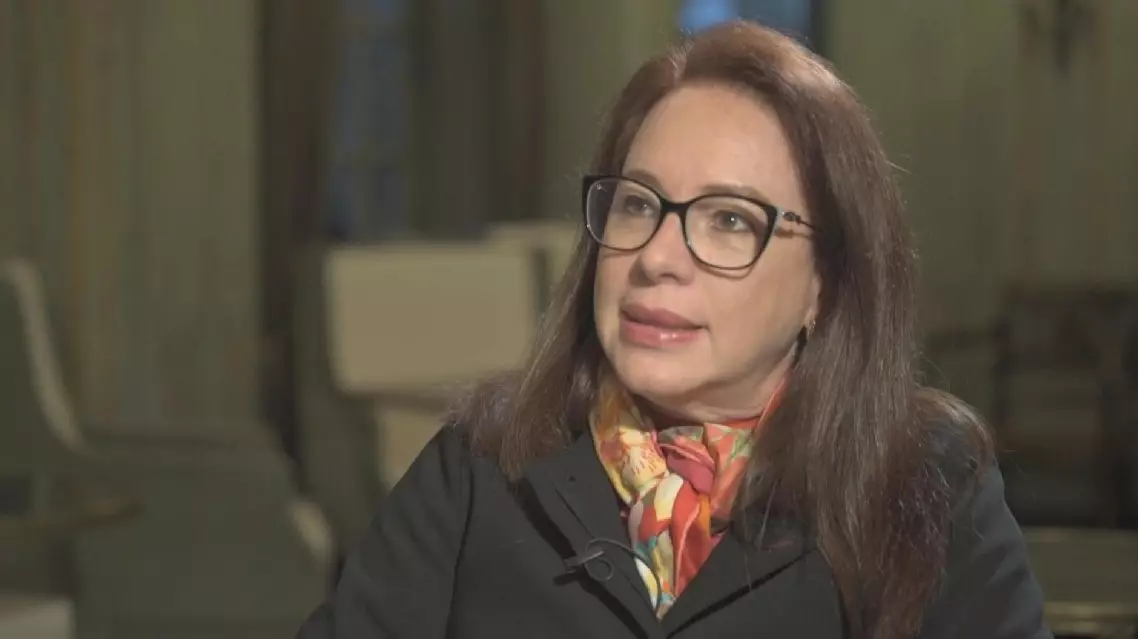
Former UNGA president calls looks to multipolarity to address overlapping challenges


